Wednesday 9 July
Here's what's happening today:
Conference Sessions (Rooms 1 - 7)
- Opening Keynote (Room 1)
- Tracks: Art, Business, Coding, Design, Discoverability, Indie (Rooms 1 - 4)
- Performance Track (room 5)
- Free Roundtables (Room 6)
- Free Expo Sessions (Room 7)
Expo
- 50+ stands
- Indie Showcase - Vote for your favourite game HERE
Networking
- Meet@Develop Meeting Zone (Expo Gallery 2nd Floor) - Find out more HERE
- Networking Lounge in the Expo
- 13.00 - 14.00: The Pause Collective Sound Bath in support of SpecialEffect and Safe in Our World in The Quiet Room
- 15.00 - 17.00: Women in Games Fizz and Cake in 1890 Restaurant (off hotel lobby)
- 17.00 - 18.00: Expo Mixer sponsored by Keywords Studios
- 19.00: Develop:Star Awards at the Brighton Dome
- 20.00: GamesIndustry.biz Summer Party
Lunch
- For Conference Pass holders only (Expo Gallery 2nd Floor)
Free Creche
- Find out more HERE
Don't forget your free ice cream from the van at the front of the hotel courtesy of Hangar 13 Games!
Downloads
Conference Programme Event Map Expo FloorplanTodays sessions
9:45am
KEYNOTE: Remedy’s Sam Lake: 30 Years of Storytelling
This fireside chat will explore Develop Star Award recipient Sam Lake's long career in games. He’ll discuss starting out as a writer on Death Rally in 1996 to playing Max Payne, his involvement in the Alan Wake games plus his journey to becoming the multi-award-winning story-teller and Creative Director of Remedy Entertainment. Sam will also share what inspires him today and his creative drive to make a brighter future for the games industry.
Hosted by: Sam Loveridge, Games Radar
10:00am
VO:ICE – Voice Over: Insights into Client Expectations
Pulling back the curtain of the game development side of the glass, Frontier Developments’ Dialogue Manager James Stant dives into the expectations developers hold of you - dearest voice talent - seeking, auditioning-for and delivering our celebrated game acting performance roles.
As the industry becomes more connected than ever, voice talents are expected to have ALL the know-how; to be the self-promoter, the self-engineer, the wearer of many hats. But do you know what you need to equip yourself with to stay competitive in the eyes of a developer? Ultimately, we’re all working towards the same goal. Every person involved wants you to succeed; they want you to be the one that can realise the vision that they’ve spent years pouring their own soul into. But is communication always perfect? Do decisions lie solely in your hands? Maybe not, but there’s a lot you can control.
However, what if things do not go as planned? Rejection will naturally rear its head. We’re talking about confidence-shattering, career-questioning rejection, after all. But it does not have to be the end! How you choose to handle that can define your longevity and resilience in a highly competitive, yet highly community-driven industry. So continue your learning journey with a little perspective… a perspective taken from an oft-disembodied voice on a video call that may not give you much more than a; “Yep we got it, let’s move on”. But don’t you want to know more?
Session Takeaway
- The top five things a client will be looking for when casting for a role
- The recording standards/terms a client will expect you to be familiar with
- An understanding of the bigger picture of developer decision-making
- How rejection is anything but the end
11:00am
30 years of Change - Now and Then
Housemarque was one of the companies taking advantage of the beginning of the rise of PC gaming and started developing games in 1995. This talk is discussing how different the times are now compared to three decades ago from a small game studio perspective. Comparing the times when the company was started to now being one of the PlayStation Studios gives a unique perspective on how the games industry has changed over the years.
The talk is for everyone interested in game studio development.
Session Takeaway
- How game studio growth impacts strategy, culture, and opportunities over time
- Key lessons from Housemarque's evolution from indie beginnings to AAA development
- Practical insights on balancing product development with company growth and sustainability
Cardboard, Clay, Fabric and Green Screens: Exploring Craft Mediums in Game Art
Asterism is an interactive music video game set in space, with hand-crafted art made from a variety of mediums such as clay and cardboard. Claire Morwood will share behind the scenes examples of her art process and experimentation during Asterism's development. She will talk about why she uses hand-crafted art styles, as well as showing specific examples from the game and details of the techniques and equipment that she uses. In particular, she will talk about stop-motion graphics, photography, digital editing and how to experiment with a range of art materials, providing insight and inspiration into a joyful and creative way to make unique video game art.
Session Takeaway
- Techniques for creating hand-made art
- Advice on equipment and process for digitising physical art
- Inspiration for experimenting with art styles
Growth in Progress: Harnessing AI to make your game feel ALIVE!
This talk will cover why forward-thinking game developers should consider AI, and what exciting new technical and design challenges this opens up for them. I will discuss this through case studies from our game, GUG, an AI roguelike creature-battler that gained popularity in its early-release demo due to its novel AI-driven creature code generation and game design. This talk is broken into 3 parts:
- Why you should use AI for your game’s development
- A case study of how it worked for GUG
- Establishing a set of design principles for implementing AI into games
Session Takeaway
- Why you should implement AI into your game allowing players culture and creativity to flourish
- How to work with AI by setting minimal but well-placed design constraints in your game that compliment AI and don't suffocate it
- Exploring unique ways to embellish your game with AI while keeping it understandable and enjoyable to the player. Not just making dialogue more “realistic”...
Productive & Pragmatic Prototype Programming
There’s countless talks about how to run a prototype from a design point of view, and talks aplenty about what makes good production code, but when it comes to writing code for prototypes, best practice is either “treat it like production”, or a licence to be slapdash and casual.
There’s more to effective prototype code than this!
Andrew Fray has a decade of experience leading prototyping code teams at Spry Fox and Roll7, and will lay out his framework for implementing and maintaining prototype code in a way that lets designers answer important questions as effectively as possible, without coders getting bogged down in spaghetti code.
Session Takeaway
- The differences between prototyping and production code, what goals they satisfy, and how their audiences differ
- How to select the right corners to cut when implementing prototype features
- How to analyse prototype features to help you reason about the state of the prototype, and make the transition to shipping code
Approaching Intimacy in Video Games – Intimacy Coordination to Enhance Storytelling
Currently within the performance for videogame space, the need for and understanding of Intimacy Coordination is not broadly accepted compared to other media industries.
Throughout the course of this talk it is our intention to explain, educate and demystify the process for actors, developers, writers and producers. We will be covering the benefits from an actors and directors perspective on the safety it offers to engage in intimate material. From a project manager’s perspective on how intimacy coordinated sessions can fit into a voice production pipeline. And from the point of view of the Intimacy Coordinator themselves offering insight into their process.
Session Takeaway
- The need and benefits of intimacy coordination for videogame production cycles
- How Intimacy Coordination can fit into a production pipeline
- What a performer can expect and ask for from Intimacy Coordination
Develop: FTUE (First Time User Experience) Wednesday
A relaxed and informal roundtable designed to help you get the most out of your time at the conference. A diverse panel of friendly and experienced devs from across the whole industry spectrum want to help anyone who feels shy, awkward, a little out of place, on the outside, or just unable to really squeeze all the goodness out of this amazing show. You'll feel positive, empowered and fully equipped to have an absolutely smashing time, with tips on how to be productive, tools to network, and commitments from volunteers to be your safety net should things get a little too much! Finally, should you feel like it would help, we'll match people up with Show Mentors to ensure however long you're in Brighton, you go back to your studio feeling invigorated and inspired!
Session Takeaway
- Shared experiences that will give you some ideas on best practise plus do's and dont's for networking at every event.
- Recommendations for talks to attend and delegates to meet, plus practical help to do so!
- Knowledge of safe and quiet spaces to help manage your experience at the show
- Introductions to helpers who you can approach throughout your visit if you need a friendly face!
WorkWise for Screen: Fair Play at Work
WorkWise for Screen supports employers and hirers in the games industry with expert guidance on UK employment law, HR best practice and people management.
The UK games industry is at a crossroads. Studio closures and mass layoffs have flooded the market with senior talent, while entry-level roles are more competitive than ever. Amid the upheaval, one thing remains: the creativity, passion, and skill that drive this industry forward.
As new studios launch and existing teams fight to stay afloat, leadership must build strong, legally sound and sustainable workplaces - fit for the long haul.
The games industry has long attracted neurodivergent talent, yet many studios still fall short on equitable hiring, contracts, and workplace support. Employment tribunal cases around discrimination and neurodiversity are rising - so how can leaders ensure their practices are both compliant and genuinely inclusive?
In this interview-led session, industry experts share crucial insights on:
Recruitment – how to avoid bias, attract top talent, and ensure a transparent and inclusive selection process.
Contracts and compliance – key legal considerations when hiring employees, contractors or freelancers, including key legal responsibilities around neurodiversity and reasonable adjustments
Workplace and culture – how to lead effectively, support neurodivergent employees, avoid common HR pitfalls and foster a resilient, inclusive team
Whether you’re building the next generation of studios or working to keep yours standing, this session will equip you with the tools to lead fairly, safely and well.
After the session and throughout Develop, visit the WorkWise for Screen stand for one-to-one meetings with legal and HR experts offering tailored advice.
Moderator: Jonas Gawe
Session Takeaway
- What effective leadership looks like in uncertain times - especially when supporting diverse teams
- How to hire fairly and avoid bias-driven selection mistakes, including barriers faced by neurodivergent applicants
- How to protect your studio and your staff with legally robust contracts and inclusive workplace policies
- Why transparent, equitable practices give studios both a commercial advantage and legal protection
12:00pm
Which Indie Game Genres are Hot in 2025?
GamesIndustry.biz's Samuel Roberts is joined by a panel of guests to discuss which types of indie games are trending in 2025 – whether it comes to sales, what press are covering, what developers are pitching, and what publishers are signing.
From Outreach to Impact: Leveraging Influencers in Games Marketing
Influencer marketing has become an essential part of game marketing, but navigating it effectively can be a challenge. This session answers some of the most frequently asked questions about working with influencers, from identifying the right creators to maximising limited budgets. We'll explore the best outreach strategies, the trade-offs between mass outreach and curated partnerships and how to integrate influencers into your marketing campaigns for mutual benefit.
We’ll also discuss current platform trends, including the evolving role of Twitch, TikTok and YouTube and how shifts in social media impact influencer marketing strategies. You’ll gain insight into when and how to pay influencers, how to leverage organic reach effectively and best practices for setting clear expectations in your partnerships.
Whether you're a marketing lead, developer, or community manager looking to make influencer marketing work for your game, this session will equip you with the knowledge and tools to build impactful campaigns. Expect practical frameworks and actionable insights you can implement immediately.
Session Takeaway
- How to find the right paid and organic influencers for your game, even in niche markets
- Practical strategies for outreach, relationship building and campaign integration
- Budgeting insights, including maximising small influencer marketing budgets effectively
Micro Crowdfunding: Lessons from 20 Successful Kickstarters
Having run 20 successful Kickstarter campaigns, with funding totals ranging from £4k to £26k (and nearly £200k overall), we have built a “micro crowdfunding” methodology at Huey Games.
By keeping the campaigns small, we’ve been able to learn and deliver repeatedly, fine-tuning our approach and gradually growing our Kickstarter following over time. This has created a sustainable - albeit relatively small - revenue stream but perhaps more importantly it has given us data. From data, you get leverage. We’ve been able to use this data in grant applications, publisher pitches and in business development contexts.
In this talk, I will discuss our micro crowdfunding journey on Kickstarter, the KPI funnel we’ve developed to ensure success, the lessons we’ve learnt and the data we’ve gathered along the way.
Session Takeaway
- Be Data Driven: Use the pre-launch follower KPI to de-risk your project and maintain your sanity, and measure what your audience loves
- Build a Repeatable Niche: Find something your audience loves, that’s easy to produce, and do it again and again on a small, low-risk scale
- Nurture Your Community: Keep delivering and engaging with your backers so your audience can grow and guide you towards the right projects to reach ever greater success on Kickstarter
Player Emotional Design
When it comes to emotion in video games, the player should feel the experience, not just be a spectator. Being able to create a game that makes you deeply mesmerized, bittersweet, or sentimental is every creator's dream, but the danger is that you end up forcing the player to feel something. Sometimes this can actually ruin the experience for the player, or worse, hurt them if the experience is too overwhelming.
This talk will present a recent study in which we asked players which games they generally recognize as emotional, and what they are looking for when they choose an emotional experience. We then use 10 games from our list of top emotional games to explore the commonalities from a design perspective that make these games so memorable.
Finally, we talk about another type of memorable experience, the one that puts players' sensibilities at risk. It may be easy to conclude that violent scenes should be discarded as suicides, phobias, or controversial moral choices. Warnings are not the answer, as they prevent the player from playing the game at all, so we will present options for making the design of emotionally charged content more manageable without sacrificing the player's experience. Dealing with a difficult emotion is not an excuse for not creating an accessible experience.
Session Takeaway
- Understand what players seek when searching for emotional experiences and which games are more commonly recognized as emotionally impactful
- Understand which are the common design traits that make a game emotional and how this can inform better design
- Identify which experiences can be overwhelming for players and how to design to make them accessible without excluding certain topics (e.g. suicide/phobias)
Finding Your Path: The Road from Actor to CEO
Join us for an intimate fireside chat with Abubakar Salim, the visionary founder of Surgent Studios where a provocative idea has blossomed into a new horror game: Dead Take. Abu will recount his journey starting off as an actor, becoming a recognised voice actor and then starting his own game studio, as well as exploring the challenges and joys of bringing your dream to life.
Whether you're a game developer or a performer, this session promises to inspire your creative journey.
Hosted by: Inel Tomlinson, Actor, Comedian & Presenter
Session Takeaway
- Learn how to shift your skillset - launching an idea, handling challenges, growing a team, and fostering creativity
- Discover how personal experiences shape your storytelling voice
- Be inspired - find your voice and discover the power of storytelling in gaming
Why Can’t I Switch Off? Identifying and Managing Absence Anxiety
Do you struggle to switch off from work? Has taking a holiday caused you to feel guilty or stressed? This roundtable explores the topic of ‘absence anxiety,’ the term used to describe the overwhelming feeling of discomfort some people get when taking time away from work.
Absence anxiety can present in many ways, such as over-working or feeling stressed about completing tasks before you log off for your holiday; constantly worrying about what’s happening at work while you’re away; feeling guilty about the pressure you might put on other members of the team; and so much more.
Left unmanaged, absence anxiety can lead to burnout. This roundtable, hosted by Em Aspinall of Safe In Our World, offers a safe and welcoming environment for participants to open up about their experiences.
Together we will discuss the reasons behind absence anxiety, and how to support yourself and others by identifying behaviours, setting effective boundaries, and working alongside your colleagues and managers to ensure proper support for returning to work after time off.
Session Takeaway
- Learn to identify signs of absence anxiety
- Discover potential causes for absence anxiety and how they can affect your life
- Explore various ways to successfully navigate and reduce absence anxiety, including both individual and organisational strategies
Bridging the Many World Representations in Video Games
Our game graphics have reached a level where differentiation may come, if not from style, then by pulling from other representations of the world. Aside from the graphical, the audible, navigable, and physical representations of the game are unique; each needing to be described, queried, and updated independently. They also need to work in an efficient pipeline, ultimately complementing each other.
Given the complexity that may arise from communication within and between the many representations of the game world, we need tools to help interpret the data flow without requiring domain expertise.
This session walks through the creation, maintenance, and analysis of these representations through the optics of the Havok SDKs and tools, with the aim of enhancing the interaction and immersion in a final cohesive game world.
Session Takeaway
- Understand how different representations of the game world can be generated from the graphical representation automatically.
- Learn about approaches to keeping the different representations correlated and communicating efficiently with each other.
- Get an overview of the visual tools needed to allow anyone to interpret & analyse non-graphical representations of the world.
2:00pm
The Rise and Fall of The Flame in Marvel’s Spider-Man 2
During this session, Donald is discussing how 'The Flame' side quest arc was developed from its rough, early iterations to its epic completion. 'The Flame' was developed into a massive quest arc that involved an entirely new enemy faction, an ally npc and a boss npc that were fully supported by all departments. Donald describes the pitch process at Insomniac Games and the importance of working closely with artists and writers. He also dives into the realities of team building and supporting each team member through the highs and lows of development, and how to ultimately bring the content to completion with a high level of polish.
Session Takeaway
- Comprehensive steps and flow of production for a multi-quest story arc
- Practical methods to improve communication and team collaboration
- How to learn from mistakes and bounce back quickly
Painting 2D Like it’s 3D: How and When to as a Concept Artist
In this session, Ash will break down her process of painting 3D-style 2D illustrations step-by-step. She will walk through how form and depth can be acheived for different materials through the use of colour and light; how to paint it and how she developed a quicker 'short-hand' working style from it. Using examples of her own artwork, Ash will share her experience of when to and when not to illustrate concept art tasks in a professional setting, speaking on the benefits of illustration skills for a concept artist while distinguishing the differences between the two approaches.
Session Takeaway
- How to paint colour and light to describe form and material
- Understanding when illustrating is or is not required in concept art professionally
- The difference between illustration and concept art
- How developing illustration skills is beneficial to concept art
Now Do it Again, But Better – Building on the Success of Fights in Tight Spaces
Fights in Tight Spaces is the high-octane action movie of the roguelike genre, combining a striking visual style with deep, strategic deck building. The small team at Ground Shatter were blown away by its success and felt a great responsibility to deliver an incredible sequel to match it. Or to borrow a phrase: Do it again, but better!
Join Senior Programmer James Vigor as he explores some of the challenges the team faced in bringing their flagship game to life, and how they built upon its success for its medieval fantasy spin-off, Knights in Tight Spaces.
In this talk, James will guide you through the process of dissecting the codebase, reviewing its strengths and flaws, and deciding which bits to keep and which to rebuild from the ground up. It will appeal to developers who are working on turn-based strategy games, those about to embark on a sequel to an existing game and anyone interested in more general programming architecture advice. James will share his open and honest examination of his experiences, having been through a full development cycle of both of these popular games.
Session Takeaway
- The importance of having a post-mortem and how to contribute as a programmer
- The pros and cons of rebuilding architecture from scratch
- The lessons we learned from our games that can be applied to other turn-based games
- The importance of putting the power in the hands of the content providers
Breaking the Cycle: Our Journey from the Streets to Game Development
My lecture touches on our journey into game development & focuses on how we've learnt to be adaptable by using structured project management tools to plan realistic timelines. We break projects into smaller tasks - we aim big but plan small. Managing timelines & avoiding scope creep & burnout is crucial - i will talk about how we deal with this, & how we break each task into smaller milestones, setting flexible deadlines, and prioritising our well-being - we'd like to share our time frame challenges & how we manage them with you.
We aren't your “standard type” of game developers. Our journey was shaped by crime, gangs, & hardship, where survival took priority, trapped in cycles of petty crime with no clear way out. We needed a change.
My Co-founder Dwayne, passionate about video games, became a self-taught game developer, mastering Unreal Engine and 3D design & I explored entrepreneurship, eventually earning an honorary master’s degree in business. Starting Ragdoll Games was a bold leap, driven by passion and determination, without formal training or a business plan, requiring us to juggle multiple roles while self-funding. I'll touch upon us facing obstacles, managing disabilities, and tackling the immense challenge of learning and planning as we progress.
We continue pushing forward through obstacles, proving that with risk-taking, planning & perseverance, transformation is possible. Game development is a marathon, demanding patience and persistence. Create your own starting line, keep pushing, and believe in your vision.
Session Takeaway
- Think big but plan small - how to use a work breakdown structure
- How to manage your timeline
- How to avoid burnout, time & Scope creep
Screaming Between the Lines: Getting Specific About Performing Efforts and Vocal Combat
A deep dive into performing efforts and vocal combat for video games. Actor, director and professional stage combatant Natalie Winter talks through her experiences of reproducing pain for other people’s entertainment, as well as other human (and non-human!) noises commonly asked of actors for games.
This talk will breakdown potential expectations for performers new to working in games, explore ways of taking things further for established professionals, and suggest ways directors and game developers can help look after the actors they work with when doing this intensive work.
Session Takeaway
- A deeper understanding of how different weapons move, and how that affects the body and breath of the wielder
- Practical tips for a performer to develop variance within a batch of emotes, as well as looking out for themselves
- Practical tips for directors and game developers on working with an actor to get exactly what sound you’re after
Being and Supporting LGBTQ+ in the industry in 2025
This year’s LGBTQ+ round table will tackle key issues LGBTQ+ professionals are facing in the ever-changing social and political landscape. The hosts will present a series of topics, which attendees will be free to openly discuss, sharing their thoughts, insights and experiences, in a safe and supportive environment. Attendees should leave with a better understanding of what others are or have experienced, steps they have taken to navigate these, the knowledge they are not alone in most instances, and tangible or actionable takeaways to facilitate a better working and social environment for all.
Session Takeaway
- What LGBTQ+ professionals are experiencing in 2025
- Practical ways to navigate and mitigate negativity
- Examples of changes to EDI practices around the world along with practical advice on how to navigate them and minimise the effect on yourself
- Steps you or your business can take to support LGBTQ+ individuals and employees
Unlocking Funding: Key Strategies for Thriving in Today’s Challenging Investment Market
Since 2020 securing funding has become much more difficult, getting to a publisher is more difficult as the dramatic increase in offerings to them have multiplied. As a result traditional investment routes are growing ever more competitive and harder to access. For indie studios and solo developers, the once difficult task of aligning funding with creative and strategic goals has now become a daunting, never ending task that distracts them from developing their game. From the investors perspective they are aware that there is value in the sector but are finding it hard to choose between offerings
In this panel, our exceptional panelists will share insights from various perspectives on how innovative funding models can help your studio. We’ll explore how these models align with your creative vision and strategic goals, how they are viewed by investors, and how alternative finance—including when combined with traditional angel and VC funding—can offer a powerful and viable solution. The discussion will aim to provide practical knowledge and fresh thinking, equipping you with the tools to successfully navigate and thrive in today’s dynamic industry landscape. Whether you're just starting out, are an indie or large studio, this session will offer valuable strategies for securing the funding you need to bring your game to life.
Session Takeaway
- Gain insight into the current funding landscape, including traditional angel and VC investment, as well as non-dilutive debt finance.
- Learn how to combine different funding approaches to create a smoother, more effective financing process.
- Discover how to build long-term partnerships and relationships that support ongoing funding, allowing you to focus on creating
3:00pm
Paper Prototyping: Mechanic-Driven Design in Paper Trail
- In this talk, Henry Hoffman breaks down how game mechanics can shape everything from gameplay to story and visuals, using Paper Trail as a case study. He’ll share insights on building a game around a single core mechanic, why that leads to stronger design, and what challenges come with it. With examples from Portal, Braid, and other innovative games, this session is all about how smart mechanic-driven design can make games more engaging, unique, and memorable.
Session Takeaway
- Understanding Mechanic-Driven Design – Learn how a single core mechanic can define gameplay, storytelling, and aesthetics.
- Applying It to Your Own Games – Practical insights on identifying and refining mechanics that serve as the foundation for game design.
- Challenges & Solutions – Explore the creative constraints and opportunities that arise from mechanic-driven design and how to overcome common development hurdles.
Understanding and Modifying the Colour Pipeline in Unreal
The pipeline of color through a game engine can be somewhat of a black box to developers. When trying to affect the final image this can result in misguided code and content changes that may resolve one issue but create two more in other scenarios.
This talk aims to demystify the colour pipeline, explaining all the stages from an authored texture to the final pixels on any display. This includes color spaces, linear rendering, tone mapping, color grading and HDR output. These topics are engine-agnostic, but we will demonstrate with Unreal Engine and show some of the ways it can be modified to provide additional tooling and artistic capabilities.
With this knowledge in hand developers can create the most vibrant content possible and have confidence in the final image quality for players on whatever their display.
Session Takeaway
- An end-to-end understanding of all stages of the colour pipeline, from asset creation to final pixel on any display
- Demystifying several terms, such as color spaces, HDR and tone-mapping. Allowing you to utilize the full color capabilities of modern displays in your games.
- Insights on how your studio can modify Unreal’s color pipeline to unlock additional capabilities and artistic techniques
Reimagining Economics: Sustainability and the Future of Games
The games industry is in upheaval. Studio closures and layoffs are at an all-time high, creating existential challenges for individuals, communities, and companies. Meanwhile, the climate crisis threatens to upend ecosystems and economies alike. Now more than ever, we must rethink how we balance business priorities with planetary care. Economics has largely been reduced to the pursuit of profit, chasing short term gains. The result? A vicious rat race that leaves behind the core principle of managing and caring for our shared home. This principle is the original meaning behind the word economics.
In this talk, Jennifer Estaris explores how integrating sustainability into game development can drive both creative innovation and measurable business success.
She will share lessons from award-winning, mass-reaching games, highlighting Playing for the Planet’s Green Game Jam, with deep dives into the liveops activations of Subway Surfers, Love & Pies, and Monument Valley 2 & 3. The talk will also examine innovative jams like the IGDA Climate SIG Microjams and the recent Citizens Assembly Game Jam, as well as the critical role of energy efficiency in reducing costs and emissions.
In a saturated market where player attention is a scarce commodity, innovation is essential for long-term success. This session will equip attendees with actionable insights on leveraging sustainability and impact strategies to enhance engagement, boost KPIs, and most importantly, create games that resonate deeply, engaging hearts and minds for years to come.
Session Takeaway
- Practical strategies to make a compelling business case for sustainable design, whether from a big company or an indie studio
- Examples of creative approaches that align environmental stewardship with profitability
- Use-cases that can inspire approaches to reinvigorate the player community, making a positive impact with players and the world
- Insights into how initiatives like Playing for the Planet and the IGDA Climate SIG can amplify your efforts
Unlocking Game Data @ Koffeecup
In today's competitive gaming landscape, data is a critical asset, but many studios struggle to harness its full potential. This talk explores how Koffeecup is pioneering a data-driven culture in game development, integrating analytics, event tracking, and player feedback into a cohesive system. Attendees will learn how to establish a robust analytics pipeline, implement effective KPIs, and use machine learning to enhance player engagement. The session offers real-world case studies on transforming raw data into actionable insights that drive both creative and commercial success. Whether you're a developer, designer, or data strategist, this session will provide practical takeaways for leveraging game data more effectively.
Session Takeaway
- Understand the importance of KPIs in game development and how to design them effectively.
- Learn how to build and implement a scalable data pipeline for gaming analytics.
- Explore real-world applications of machine learning to improve player engagement.
KEYNOTE: Performance in Games: From Data to Drama
As an award-winning actor with a career spanning theatre film, television, and video games, Jane Perry has been at the forefront of the evolving relationship between performance and interactive storytelling. From embodying characters in the motion capture volume to creating complex and engaging vocal performances, Jane has witnessed firsthand how far the industry has come in supporting truly immersive and collaborative experiences for both the actor, developer and the player.
In this keynote, Jane will explore why celebrating performance in games is more important than ever before. She’ll share insights from her own journey, discuss the challenges and opportunities for actors in this space, and examine what game developers can learn from traditional performance techniques.
Join Jane as she explores the journey from Data to Drama and makes the case for why elevating acting in games is essential for the future of interactive entertainment.
Session Takeaway
- Why understanding the craft of acting is important in the interactive media space
- What are the skills that are required of the actor, and how can the developer best support these needs?
- A brief overview of my own career over the past 15 years, and some thoughts on what we might hope for in the future
Empowering Women’s Health in the Workplace: Breaking Barriers and Building Support
Women’s health is a crucial, yet an often overlooked aspect of workplace wellbeing. From menstruation to pregnancy, to menopause and beyond, these health topics are deeply personal but have a significant impact on professional lives. Despite the importance of addressing women’s health at work, many face stigma, lack of support, and insufficient policies. This roundtable aims to dismantle those barriers, foster allyship and create a supportive, inclusive environment where all women can thrive.
Session Takeaway
- Understand Women’s Health in the Workplace:
Gain a comprehensive understanding of how various aspects of women’s health; menstrual cycles, pregnancy, fertility, menopause, and more can affect performance, productivity and mental health, recognising the hidden challenges many face at work and how this influences their career paths - Create Supportive and Inclusive Workplaces:
Understand the importance of offering mental health support, wellness programs, and career progression initiatives that consider women’s health challenges
- Foster Open Conversations About Health:
Examine how leaders and managers can initiate and encourage these conversations while maintaining sensitivity and respect - Implement Practical Solutions:
Gain insights into the importance of allies in the workplace and how to cultivate allyship that benefits everyone
Cultivating a Loyal Fanbase: Marketing Farming Simulator
"Who plays this game?" This session explores the marketing and community engagement strategies that have turned Farming Simulator, often called a niche game, into a beloved and commercially successful franchise. Attendees will learn how to nurture a passionate fanbase, leverage community feedback, and create engaging content. The talk covers effective marketing campaigns, community-building techniques, and real-world examples of successful initiatives.
Learn how to think outside the box when your core community is often a bit different than others while still maintaining the balance and not forget about the larger audiences which might not call your game their favorite but keep coming back because they like it.
Session Takeaway
- Attendees will gain actionable strategies for growing and sustaining a loyal, even niche fanbase, innovative marketing tactics tailored to niche audiences, and insights into harnessing community engagement to drive game success.
4:00pm
The Indie Edge: Attracting Talent When You’re Not AAA
Joe Burridge brings a unique perspective from scaling companies across the startup and AAA gaming worlds. In this talk, he’ll empower indie developers with the tools to attract and retain top talent in an industry dominated by major players. Drawing from his experience scaling tech companies, moving into games and witnessing exponential growth at EA and Epic Games, and now supporting ~90 startups as part of a VC firm, Joe will share actionable strategies on interviewing best practices, crafting compelling employment brands and embracing a "moneyball" hiring philosophy. This session is your playbook to make your indie studio a magnet for incredible talent.
Session Takeaway
- Hire for Fit and Potential: Master interviewing techniques to uncover cultural alignment and untapped talent overlooked by AAA studios.
- Build an Irresistible Employment Brand: Learn how to showcase your studio’s unique strengths to attract passionate candidates.
- Adopt a Strategic "Moneyball" Mindset: Leverage unconventional hiring strategies to assemble a dream team on an indie budget.
Piracy and Anti-Piracy
How piracy groups operate (group structures, processes, servers, crack-tools) and how I know. Why preventing cracked pre-release and release-day builds is protecting revenue, growth, investor confidence, industry reputation and the valuation of games. Performance loss because of anti-piracy tech. Temporary ownership of games because of anti-piracy tech. How to create your own anti-piracy tech.
Session Takeaway
- Understanding piracy
- How to avoid common mistakes when making your own anti-piracy solution
- How to create your own anti-piracy solution without reverse engineering experience
No Limits: Why Accessibility FOR ALL Starts with the Developers
The games industry loves to talk about accessibility—for players. But what about accessibility for the people making the games? Studios are unknowingly limiting their own talent pool by failing to remove barriers for disabled developers.
In this talk, I’ll share my journey as a blind 3D artist with 8+ years in the industry, working in and leading teams in indie and VR studios—all remotely. From adapting my workflow to overcoming industry misconceptions, I’ve learned that limitations are often perceptions, not realities. But while I’ve found ways to thrive, many talented developers are being excluded because accessibility isn’t seen as a priority in the workplace.
Through real examples, I’ll highlight how small changes—like accessible software setups, remote work flexibility, and inclusive hiring practices—can open doors for disabled game devs. I’ll also challenge the mindset that accessibility is “someone else’s job” and show how fostering an inclusive industry benefits everyone, from the studio floor to the players themselves.
This talk isn’t about making excuses—it’s about breaking barriers. If the industry truly believes in “No Limits,” it’s time to start proving it.
Session Takeaway
- By making the games industry more accessible, we naturally make games more accessible for players
- Don’t limit yourself—you’re capable of more than you think
- Accessibility FOR ALL by ALL
Anti-Social Media? Why the Humble Newsletter is Your Studio’s Most Powerful Channel in 2025
For game studios looking to achieve awareness around their games, the social media landscape of 2025 is fraught with black-box algorithms, toxic communities and the agendas of self-interested billionaires. Elon Musk’s tumultuous ownership of Twitter – now X – has spurred on an exodus from the once glorious platform, leaving game devs scrambling to find audiences amidst a patchwork of other platforms. Engagement has never been more challenging or unpredictable.
In this talk, I’ll explore why traditional social media is no longer the reliable growth engine it once was. Rather than these one-to-many platforms, one-to-one communication - the modest newsletter or mailing list - has seen a resurgence in popularity, and is more effective today than its ever been.
I'll discuss how owning your audience through an email list ensures consistent, algorithm-free communication. Unlike fleeting posts on social media, newsletters allow the opportunity to tailor your communication to the individual, providing a space to build trust and share a window into your studio's work that other platforms simply don't allow. One-to-one communication isn't without its constraints and challenges, of course, and we'll address these along the way too.
In this talk, I’ll offer tangible steps to launching, growing and bringing your mailing list into the heart of your studio’s communications. We'll look at lead magnets, open rates and deeper integrations to enrich the game-experience in ways other platforms don't allow for. In today’s fractured digital landscape, the humble newsletter is your studio’s most powerful weapon. I'll share how to wield it effectively.
Session Takeaway
- Why one-to-one communication via a mailing list is so powerful in 2025
- Reliable methods for improving your open rate, and optimising your content strategy
- Strategies to grow your subscriber base via landing pages, lead-magnets and other incentive schemes
- How to take your newsletter to the next level via automations and integrations
Casting Panel - Standing Out for the Right Reasons
With great casting comes great responsibility. Casting is a key aspect of game performance, balancing character design, performer talent and authenticity to find the perfect match for a role.
Our panel of international experts will explore the creative triumphs and challenges they face when casting performances for games across voice, mocap and performance capture.
Session Takeaway
- Get insights into the casting process
- Discover how to approach castings for different performance types
- Find out what goes into authentic casting and what to do (and not do!) to win a job
Game Developers as Role Models: Shaping the Future of the Industry
The games industry is more than just making games, it’s shaping the future for those who aspire to be apart of it. Your experience, insights and career journey can inspire students and career changers.
With the rise of social media, the ability to share your professional journey has never been easier. These online platforms can break down barriers, demystify the industry and allow us to provide real-world guidance to the next generation of developers. Vitally, these platforms can also help expand our reach to marginalised and underrepresented groups to open the door to them too.
This session will discuss how anyone can become an active and positive influence in the industry. The importance of representation for underrepresented groups and how to share your experiences in a way that is motivational and informative. We will explore how industry professionals can collectively counter negative stereotypes, such as crunch culture and job instability, by shedding light on studios that values their employees.
Session Takeaway
- How to use your career journey to inspire and inform the next generation
- Strategies for social media and mentorship to break down industry barriers
- Challenge negative stereotypes and highlight positive industry experiences
Unreal Engine UI Optimisations Using Materials
This session builds on the topic of achieving better performance using well-designed materials. We aim to improve UI performance by replacing simple, repeatable panel hierarchies with materials to produce resource-efficient UI animations.
Session Takeaway
- Understanding the core performance bottlenecks for UI performance on a layout level
- Setting up HLSL for UI Materials in the project
- Understanding the benefits and use cases for use of HLSL computation to generate basic UI visuals
5:00pm
AI Ethics Within Game Development
Whilst AI has been used in game development for years, AI has been in the public spotlight for the last couple of years in response to the evolution of the technology following the introduction of publicly available Generative AI tools, such as ChatGPT. This has driven increased scrutiny from regulators, strikes by actors concerned that AI could threaten their livelihood, questions over diversity and inclusion caused by biased training datasets and various court cases being filed for IP infringement claims.
This session will look at these issues and suggest how the games industry can use AI to make great games to improve consumer experiences, whilst ensuring that it is using AI responsibly and ethically.
Session Takeaway
- The ethical issues a studio needs to consider when deciding how and where to use AI in game development
- Examples of positive and controversial uses of AI in game development
- Ethical design principles that can be adopted when using AI
- Practical pointers on how to use AI ethically
How to Design and Build Killer Game UI
In most game studios, designers create the UI and then hand it off to developers to make it functional. That handoff is often messy, time-consuming, and riddled with redundant work. Developers might struggle to execute the designer’s vision due to their tool or language, or build functional UI with developer tools like HTML or XAML — not design tools.
There is a new, better way to build game UI. With Rive, you design and animate game UI in the Rive Editor, export it to the Rive format, and run your files with the Rive Runtimes in Unity, Unreal, Defold, or your custom game engine.
Rive's Ross Plaskow and Gordon Hayes will break down how to build a game menu that’s both functional and powerful, without sacrificing creativity.
Session Takeaway
- You'll learn how to create highly animated and responsive production-ready game UI.
- You'll also learn how much faster and more efficient this process is than other processes, while giving designers control and empowering the entire team to ship in days and weeks instead of months.
- You'll leave with a better understanding of the future of UI - and why hardcoded design is history.
Leading a Coding Team with Imposter Syndrome
Imposter syndrome can sometimes stay with us as we progress through our careers. You may find yourself in the situation of having your first project to lead and the self-doubt is still lurking in the background. This session will take you on a journey of how to handle leading a new project - from the first few days of setting up source control and workflows, becoming masters of a new codebase, submitting the first deliverables and handling the ups and downs in between - all while keeping imposter syndrome as far away as we can manage.
Session Takeaway
- Best practices on how to lead and manage a team through a new project.
- How to navigate imposter syndrome across the team, throughout the course of a new project.
- Understanding common pitfalls of new team leads and how to avoid them.
Lightning Lessons in LiveOps Planning
In the next 45 minutes learn how to define and plan effective LiveOps:
15 Minutes Theory: Core Concept: We explore a game in terms of LiveOps Activities, Promotions and Community with a view on how to package a seasonal activity that can be delivered efficiently to drive an agreed KPI without burning out your team.
15 Minutes Design: Each group picks a game and agrees one form of utility from that game, they then have to devise a set of seasonal activities in order to deliver on a specific KPI.
15 Minutes Pitch: Each group pitches their concept and gets peer and expert feedback
Join this session if you want to understand an efficient framework to design effective LiveOps experiences. No prerequisite knowledge required. Recommended for anyone involved in, or interested in, making or marketing games.
Session Takeaway
- How to identify what players care about that will help build retention
- How to define simple, effective, sustainable LiveOps activity for any game
- The basics of LiveOps and how to get started planning it into your game and processes
Performance Production Panel - How to be an Actor We Love
'You've booked a great gig and want to crush your session! But what does that really mean? What do you bring beyond your voice?
Our veteran panellists will talk about what types of sessions you'll encounter and how to best prepare.
Information about microphone set ups, the different types of scripts you'll see, the different types of session you'll encounter from solo voice sessions, group recording session, facial capture to full performance capture.
Session Takeaway
- What to expect on the day when you turn up to perform in a game
- How to best elevate your performance
- What happens to your voice after you exit the booth
Backlash - The Real Cost of Diversity and Inclusion
A Roundtable discussing how companies can do more when it comes to the anti-woke backlash and how diversity and inclusion initiatives are crucial to helping the gaming industry grow.
Session Takeaway
- The real takeaway from this panel talk will be multifaceted. Individuals will understand that they must remain committed to diversity and inclusion (D&I) despite the anti-woke backlash, as these initiatives are not just about ethics but are crucial for the gaming industry’s growth, innovation, and long-term success
- They will be given facts about why diverse teams have led to better creativity, broader market appeal, and stronger financial performance
- They will understand how to respond effectively to backlash, we will touch upon strategies companies can use to navigate criticism so they can stay committed and foster an inclusive culture without alienating key stakeholders
Raise the Game: Building an Industry Where Everyone Can Play
The UK games industry thrives on creativity, innovation, and diverse perspectives. Raise the Game is the industry’s leading initiative driving progress in equality, diversity, and inclusion. Attendees will gain insights into the new Raise the Game Fund, which will now provide direct support to individuals and organisations championing EDI initiatives. They will also learn about the Video Games Industry Census, which establishes an evidence-based approach to tracking diversity, and the Raise the Game Community, which enables peer learning and best practice sharing. This session will outline actionable strategies for businesses of all sizes to implement meaningful change.
Session Takeaway
- Understanding the importance of structured EDI initiatives
- Practical steps for accessing Raise the Game funding and resources
- How data and community-driven collaboration can create lasting impact
Wednesday 9 July Official Events
13.00 - 14.00: The Pause Collective Sound Bath in support of SpecialEffect and Safe in Our World in The Quiet Room
15.00 - 17.00: Women in Games Fizz and Cake in 1890 Restaurant (off hotel lobby)
17.00 - 18.00: Expo Mixer
19.00: Develop:Star Awards at the Brighton Dome
20.00: GamesIndustry.biz Summer Party
































































































